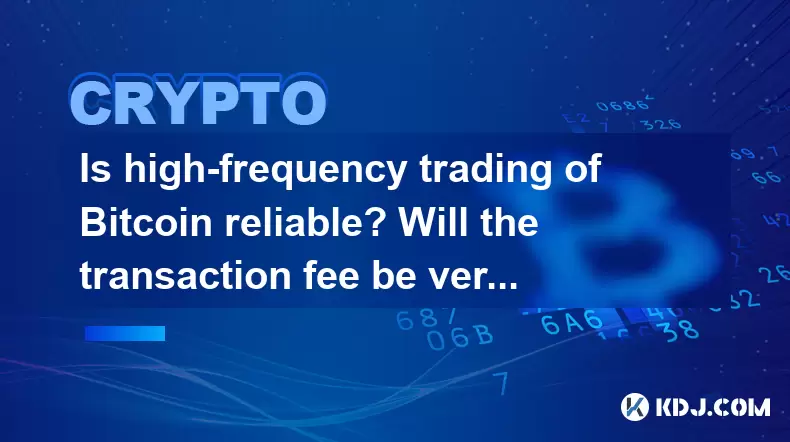-
 Bitcoin
Bitcoin $119000
-2.21% -
 Ethereum
Ethereum $4315
1.01% -
 XRP
XRP $3.151
-3.11% -
 Tether USDt
Tether USDt $0.0000
0.00% -
 BNB
BNB $808.5
-0.71% -
 Solana
Solana $175.8
-4.21% -
 USDC
USDC $0.9999
0.00% -
 Dogecoin
Dogecoin $0.2250
-3.92% -
 TRON
TRON $0.3469
1.77% -
 Cardano
Cardano $0.7818
-3.81% -
 Chainlink
Chainlink $21.47
-2.10% -
 Hyperliquid
Hyperliquid $43.30
-6.81% -
 Stellar
Stellar $0.4370
-2.84% -
 Sui
Sui $3.682
-4.40% -
 Bitcoin Cash
Bitcoin Cash $590.8
2.67% -
 Hedera
Hedera $0.2484
-5.20% -
 Ethena USDe
Ethena USDe $1.001
0.00% -
 Avalanche
Avalanche $23.10
-4.29% -
 Litecoin
Litecoin $119.2
-3.96% -
 Toncoin
Toncoin $3.409
0.90% -
 UNUS SED LEO
UNUS SED LEO $9.016
-1.29% -
 Shiba Inu
Shiba Inu $0.00001304
-3.82% -
 Uniswap
Uniswap $11.18
1.33% -
 Polkadot
Polkadot $3.913
-3.51% -
 Cronos
Cronos $0.1672
-3.08% -
 Dai
Dai $1.000
0.02% -
 Ethena
Ethena $0.7899
-4.70% -
 Bitget Token
Bitget Token $4.400
-1.23% -
 Pepe
Pepe $0.00001132
-5.93% -
 Monero
Monero $257.9
-6.44%
Is high-frequency trading of Bitcoin reliable? Will the transaction fee be very high?
HFT in Bitcoin can be reliable with robust algorithms and infrastructure, but transaction fees can be high; traders should seek exchanges with competitive fee structures.
May 20, 2025 at 01:07 am

Is high-frequency trading of Bitcoin reliable? Will the transaction fee be very high?
High-frequency trading (HFT) in the cryptocurrency market, particularly with Bitcoin, has become a topic of interest for many traders looking to capitalize on the volatile nature of digital currencies. HFT involves executing a large number of orders at very fast speeds, often using sophisticated algorithms to analyze market data and make trading decisions in milliseconds. This article will explore the reliability of high-frequency trading in Bitcoin and discuss the associated transaction fees, providing a comprehensive overview for traders considering this approach.
Understanding High-Frequency Trading in Bitcoin
High-frequency trading in Bitcoin operates similarly to HFT in traditional financial markets but with some unique characteristics due to the nature of cryptocurrencies. HFT strategies in Bitcoin aim to exploit small price discrepancies that may arise due to the decentralized nature of cryptocurrency exchanges and the speed at which information spreads across the network. These strategies can include market making, arbitrage, and other forms of algorithmic trading designed to profit from short-term market movements.
Reliability of High-Frequency Trading in Bitcoin
The reliability of high-frequency trading in Bitcoin is a complex topic that depends on several factors. One key aspect is the robustness of the trading algorithms used. High-quality algorithms that can quickly adapt to changing market conditions and effectively manage risk are crucial for successful HFT. Additionally, the infrastructure supporting the trading operations, such as high-speed internet connections and proximity to exchange servers, plays a significant role in the reliability of HFT. Any delay or interruption in these systems can lead to significant losses.
Another factor affecting the reliability of HFT in Bitcoin is market liquidity. Bitcoin, being one of the most liquid cryptocurrencies, generally provides a favorable environment for HFT. However, liquidity can vary significantly across different exchanges and times of the day, which can impact the effectiveness of HFT strategies. Traders must carefully monitor liquidity conditions and adjust their strategies accordingly to maintain reliability.
Transaction Fees in High-Frequency Trading of Bitcoin
Transaction fees are a critical consideration for high-frequency traders, as the sheer volume of trades can lead to significant costs. In Bitcoin trading, transaction fees are typically charged by exchanges for executing orders. These fees can vary based on the exchange, the type of order, and the volume of trading. For high-frequency traders, these fees can add up quickly, potentially eating into profits.
To manage transaction fees effectively, HFT traders often seek out exchanges with competitive fee structures. Some exchanges offer fee discounts for high-volume traders or provide rebates for adding liquidity to the market. It's essential for traders to compare fee structures across different exchanges and choose those that align best with their trading strategies. Additionally, some traders may use maker-taker fee models, where they receive a rebate for providing liquidity and pay a fee for taking liquidity, to optimize their costs.
Strategies to Minimize Transaction Fees
There are several strategies that high-frequency traders can employ to minimize transaction fees when trading Bitcoin. One approach is to use batch processing, where multiple trades are grouped together and executed as a single transaction, reducing the overall number of transactions and thus the fees. Another strategy is to optimize order types, such as using limit orders instead of market orders, which can help control the cost of executing trades.
Additionally, traders can leverage technology to automate fee management. This can involve using software that automatically routes orders to the exchange with the lowest fees at any given time or that dynamically adjusts trading strategies based on current fee structures. By carefully managing transaction fees, HFT traders can enhance the profitability of their operations.
Risks and Challenges of High-Frequency Trading in Bitcoin
While high-frequency trading in Bitcoin can be lucrative, it also comes with significant risks and challenges. One major risk is the potential for flash crashes, where the price of Bitcoin can plummet rapidly due to a sudden sell-off triggered by HFT algorithms. These events can lead to substantial losses if not properly managed. To mitigate this risk, traders must implement robust risk management strategies, such as setting stop-loss orders and diversifying their trading across multiple assets and exchanges.
Another challenge is regulatory uncertainty. The cryptocurrency market is still relatively new and subject to evolving regulations, which can impact the viability of HFT strategies. Traders must stay informed about regulatory developments and be prepared to adapt their strategies accordingly. Additionally, the competitive nature of HFT means that traders must continually innovate and refine their algorithms to maintain an edge in the market.
Technical Requirements for High-Frequency Trading in Bitcoin
High-frequency trading in Bitcoin requires significant technical infrastructure to support the speed and volume of trades. Traders need access to high-speed internet connections to minimize latency and ensure that their orders are executed as quickly as possible. Co-location services, where trading servers are placed in close proximity to exchange servers, can further reduce latency and improve the reliability of HFT operations.
In addition to hardware, software plays a crucial role in HFT. Traders must develop or acquire sophisticated trading algorithms capable of analyzing vast amounts of market data in real-time and making rapid trading decisions. These algorithms must be continuously tested and optimized to ensure they remain effective in the ever-changing cryptocurrency market. Furthermore, robust data feeds and analytics tools are essential for monitoring market conditions and adjusting trading strategies on the fly.
Frequently Asked Questions
Q: Can high-frequency trading be profitable for small-scale traders?
A: While high-frequency trading is often associated with large institutional traders, small-scale traders can also participate in HFT. However, they must be aware of the significant technical and financial resources required to compete effectively. Small-scale traders may find it more challenging to achieve the same level of profitability as larger players due to economies of scale and access to advanced technology.
Q: How does market volatility affect high-frequency trading in Bitcoin?
A: Market volatility can both benefit and challenge high-frequency trading in Bitcoin. On one hand, increased volatility can create more opportunities for profit by providing larger price swings to exploit. On the other hand, high volatility can also increase the risk of significant losses, especially if trading algorithms are not designed to handle sudden market movements effectively. Traders must carefully balance the potential rewards and risks associated with volatile market conditions.
Q: Are there any ethical concerns associated with high-frequency trading in Bitcoin?
A: High-frequency trading in Bitcoin, like in traditional financial markets, raises several ethical concerns. One major concern is the potential for HFT to create an uneven playing field, where traders with access to advanced technology and faster execution speeds have an advantage over others. Additionally, the use of HFT strategies can sometimes lead to market manipulation or contribute to increased market volatility, which can harm other market participants. Traders must be mindful of these ethical considerations and strive to conduct their operations responsibly.
Q: How can traders ensure the security of their high-frequency trading operations in Bitcoin?
A: Security is paramount in high-frequency trading, especially in the cryptocurrency market, where cyber threats are prevalent. Traders can enhance the security of their operations by implementing robust cybersecurity measures, such as encryption, firewalls, and intrusion detection systems. Additionally, using secure communication channels and regularly updating software and hardware can help protect against potential vulnerabilities. It's also crucial to have a comprehensive disaster recovery plan in place to quickly respond to any security breaches or system failures.
Disclaimer:info@kdj.com
The information provided is not trading advice. kdj.com does not assume any responsibility for any investments made based on the information provided in this article. Cryptocurrencies are highly volatile and it is highly recommended that you invest with caution after thorough research!
If you believe that the content used on this website infringes your copyright, please contact us immediately (info@kdj.com) and we will delete it promptly.
- Arc Blockchain: Circle's Layer-1 Play Amidst $428 Million Loss
- 2025-08-12 20:30:13
- XRP Price: Riding the Bull Cycle Wave or Hitting a Wall?
- 2025-08-12 20:50:12
- Cloud Mining in 2025: Chasing Passive Income and High Returns
- 2025-08-12 20:30:13
- Solana Price, Meme Coins, and 100x Gains: What's the Hype?
- 2025-08-12 20:50:12
- Japan, Bitcoin, and Treasuries: A New Era of Corporate Finance?
- 2025-08-12 18:30:12
- Bitcoin Bull Market: Decoding the Indicators for the Next Big Move
- 2025-08-12 18:30:12
Related knowledge

How to purchase Aragon (ANT)?
Aug 09,2025 at 11:56pm
Understanding Aragon (ANT) and Its PurposeAragon (ANT) is a decentralized governance token that powers the Aragon Network, a platform built on the Eth...

Where to trade Band Protocol (BAND)?
Aug 10,2025 at 11:36pm
Understanding the Role of Private Keys in Cryptocurrency WalletsIn the world of cryptocurrency, a private key is one of the most critical components o...

What is the most secure way to buy Ocean Protocol (OCEAN)?
Aug 10,2025 at 01:01pm
Understanding Ocean Protocol (OCEAN) and Its EcosystemOcean Protocol (OCEAN) is a decentralized data exchange platform built on blockchain technology,...

How to invest in Kyber Network Crystal v2 (KNC)?
Aug 12,2025 at 05:21pm
Understanding Kyber Network Crystal v2 (KNC)Kyber Network is a decentralized liquidity hub built on the Ethereum blockchain that enables instant token...

Where can I buy UMA (UMA)?
Aug 07,2025 at 06:42pm
Understanding UMA and Its Role in Decentralized FinanceUMA (Universal Market Access) is an Ethereum-based decentralized finance (DeFi) protocol design...

What exchanges offer Gnosis (GNO)?
Aug 12,2025 at 12:42pm
Overview of Gnosis (GNO) and Its Role in the Crypto EcosystemGnosis (GNO) is a decentralized prediction market platform built on the Ethereum blockcha...

How to purchase Aragon (ANT)?
Aug 09,2025 at 11:56pm
Understanding Aragon (ANT) and Its PurposeAragon (ANT) is a decentralized governance token that powers the Aragon Network, a platform built on the Eth...

Where to trade Band Protocol (BAND)?
Aug 10,2025 at 11:36pm
Understanding the Role of Private Keys in Cryptocurrency WalletsIn the world of cryptocurrency, a private key is one of the most critical components o...

What is the most secure way to buy Ocean Protocol (OCEAN)?
Aug 10,2025 at 01:01pm
Understanding Ocean Protocol (OCEAN) and Its EcosystemOcean Protocol (OCEAN) is a decentralized data exchange platform built on blockchain technology,...

How to invest in Kyber Network Crystal v2 (KNC)?
Aug 12,2025 at 05:21pm
Understanding Kyber Network Crystal v2 (KNC)Kyber Network is a decentralized liquidity hub built on the Ethereum blockchain that enables instant token...

Where can I buy UMA (UMA)?
Aug 07,2025 at 06:42pm
Understanding UMA and Its Role in Decentralized FinanceUMA (Universal Market Access) is an Ethereum-based decentralized finance (DeFi) protocol design...

What exchanges offer Gnosis (GNO)?
Aug 12,2025 at 12:42pm
Overview of Gnosis (GNO) and Its Role in the Crypto EcosystemGnosis (GNO) is a decentralized prediction market platform built on the Ethereum blockcha...
See all articles

























































































